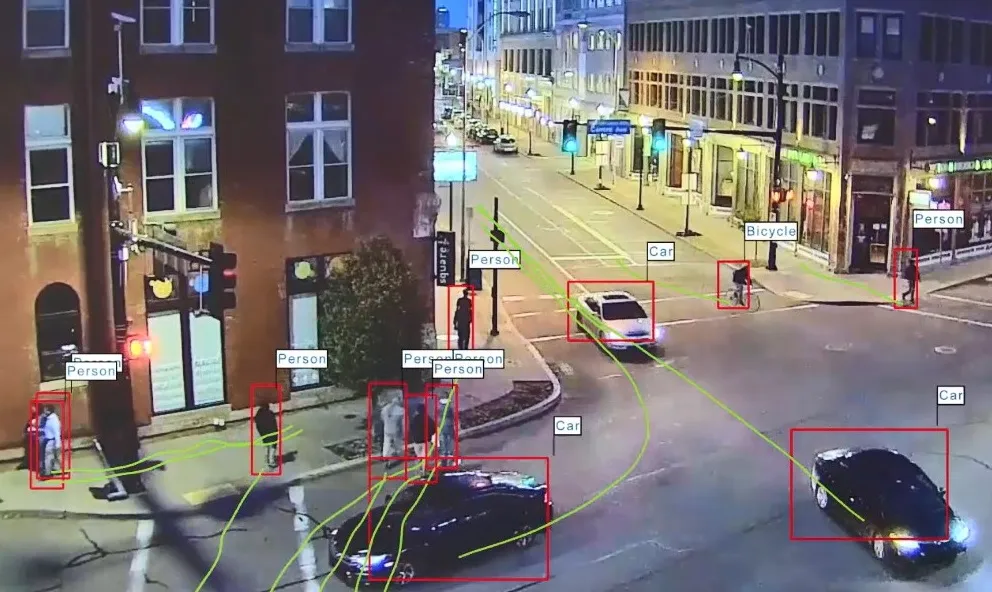A new research initiative launched by Audi, its electronics research laboratory in Silicon Valley and four top US universities aims to develop technologies focused on easing the congestion, dangers and inconveniences that often confront drivers in the world's biggest cities. The new three-year Audi Urban Intelligent Assist research initiative aims to take connected car, driver assistance and infrastructure electronics to the next level of providing detailed information so motorists have a better sense of th
May 21, 2012
Read time: 3 mins
RSSA new research initiative launched by 2125 Audi, its electronics research laboratory in Silicon Valley and four top US universities aims to develop technologies focused on easing the congestion, dangers and inconveniences that often confront drivers in the world's biggest cities.
The new three-year Audi Urban Intelligent Assist research initiative aims to take connected car, driver assistance and infrastructure electronics to the next level of providing detailed information so motorists have a better sense of the driving conditions surrounding them.
With this initiative, the universities, ERL and Audi want to cover the complete process of navigating in a mega city. The vision is to develop Audi models that will recognise individual motorists behind the wheel, know preferred destinations, routes the motorists have most commonly travelled and the time needed to reach appointments. The car will be able to help the drivers detect and avoid dangerous situations better, too.
The universities involved in the Audi Urban Intelligent Assist initiative are the5645 University of Southern California, 2176 University of California, Berkeley, 5646 University of California, San Diego and the 5647 University of Michigan Transportation Research Institute (UMTRI).
"Technologies that help motorists become more aware and efficient are a crucial step toward solving some of the biggest transportation challenges on the horizon across the world," said Dr. Burkhard Huhnke, executive director of the Audi Electronics Research Laboratory in Palo Alto, California. "Audi is confident that this initiative will provide an important insight on the future of urban transportation and produce innovative concepts that promote efficient, pleasant, and safer mobility."
The Audi vehicles envisioned in this new project would work with a city's connected infrastructure to, for example, reserve a parking spot near the driver's desired destination and optimise the trip according to what is happening throughout the city. The future connected Audi will basically take care of all the little things that make driving in the city tedious and dangerous, so that motorists can enjoy the drive and get to where they want to go efficiently, safely, and comfortably.
"Driving in an urban environment is becoming more challenging due to increasing traffic congestion that affects mobility, safety and driver comfort," said Professor Petros Ioannou, University of Southern California Center for Advanced Transportation Technologies. "New technologies and ideas can be exploited and developed that would allow the vehicle to interact with the urban environment in a much more efficient way by providing improved mobility, driving comfort and safety."
"We have always believed in the need for a holistic approach to driver assistance systems, and working with our partners at USC, UC Berkeley and Audi, we are confident that we can pool our expertise for the benefit and safety of urban drivers not just in California, but worldwide," said Mohan Trivedi, director of UCSD's Laboratory for Intelligent and Safe Automobiles (LISA). "Safety on urban roads will require a very deep understanding of the driver and his or her environment. With the proliferation of consumer electronics devices in and on-board vehicles, a major challenge in front of us is to ensure that assistance systems really help rather than distract or irritate the driver."
The new three-year Audi Urban Intelligent Assist research initiative aims to take connected car, driver assistance and infrastructure electronics to the next level of providing detailed information so motorists have a better sense of the driving conditions surrounding them.
With this initiative, the universities, ERL and Audi want to cover the complete process of navigating in a mega city. The vision is to develop Audi models that will recognise individual motorists behind the wheel, know preferred destinations, routes the motorists have most commonly travelled and the time needed to reach appointments. The car will be able to help the drivers detect and avoid dangerous situations better, too.
The universities involved in the Audi Urban Intelligent Assist initiative are the
"Technologies that help motorists become more aware and efficient are a crucial step toward solving some of the biggest transportation challenges on the horizon across the world," said Dr. Burkhard Huhnke, executive director of the Audi Electronics Research Laboratory in Palo Alto, California. "Audi is confident that this initiative will provide an important insight on the future of urban transportation and produce innovative concepts that promote efficient, pleasant, and safer mobility."
The Audi vehicles envisioned in this new project would work with a city's connected infrastructure to, for example, reserve a parking spot near the driver's desired destination and optimise the trip according to what is happening throughout the city. The future connected Audi will basically take care of all the little things that make driving in the city tedious and dangerous, so that motorists can enjoy the drive and get to where they want to go efficiently, safely, and comfortably.
"Driving in an urban environment is becoming more challenging due to increasing traffic congestion that affects mobility, safety and driver comfort," said Professor Petros Ioannou, University of Southern California Center for Advanced Transportation Technologies. "New technologies and ideas can be exploited and developed that would allow the vehicle to interact with the urban environment in a much more efficient way by providing improved mobility, driving comfort and safety."
"We have always believed in the need for a holistic approach to driver assistance systems, and working with our partners at USC, UC Berkeley and Audi, we are confident that we can pool our expertise for the benefit and safety of urban drivers not just in California, but worldwide," said Mohan Trivedi, director of UCSD's Laboratory for Intelligent and Safe Automobiles (LISA). "Safety on urban roads will require a very deep understanding of the driver and his or her environment. With the proliferation of consumer electronics devices in and on-board vehicles, a major challenge in front of us is to ensure that assistance systems really help rather than distract or irritate the driver."









